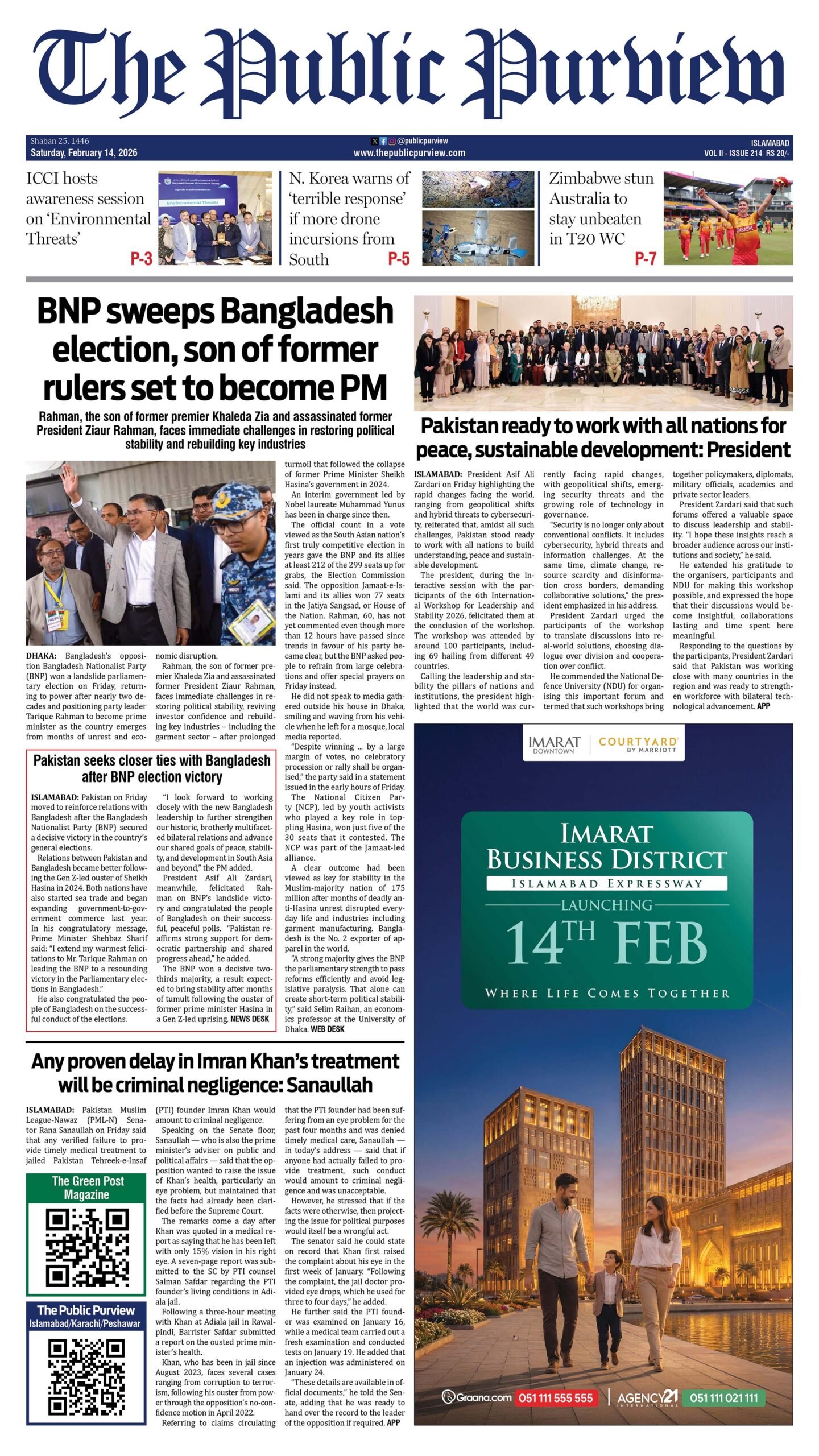Ramzan Mughal
On October 27, 2024, Uzbekistan will hold its highly anticipated parliamentary elections, marking a pivotal moment in the country’s ongoing political transformation. Under the leadership of President Shavkat Mirziyoyev, Uzbekistan has embarked on an ambitious path of reform, aiming to liberalize its political system, modernize its economy, and strengthen the rule of law. These elections are not just a routine democratic exercise but a litmus test for the effectiveness and legitimacy of these sweeping reforms.
The Central Election Commission of Uzbekistan, in collaboration with international observers, is working to ensure a transparent and credible electoral process. A testament to this commitment is the invitation extended to international observers, including a Pakistani delegation comprising prominent senators from across the political spectrum. The delegation, led by Senator Irfan Siddiqui, will not only monitor the election but also engage in meaningful dialogues with Uzbek officials, reflecting the deepening bilateral ties between Pakistan and Uzbekistan.
These elections are historic, as they will be the first held under Uzbekistan’s newly adopted mixed electoral system, combining majoritarian and proportional voting. This shift reflects a broader effort to enhance the inclusivity and fairness of the electoral process. Voters will elect 150 members of the lower chamber of parliament and 56 members of the upper chamber, alongside deputies of regional, city, and district councils. For the first time, political parties will be competing on equal footing in a proportional system, allowing a more diverse array of political ideologies to gain representation.
The reforms introduced under President Mirziyoyev have expanded the role of parliament, enabling it to play a more active part in shaping the country’s future. These changes align with the broader global trend of democratization, where nations are increasingly adopting governance models that emphasize pluralism, accountability, and public participation.
In line with this vision, Uzbekistan’s political landscape is more vibrant than ever before. Five major political parties will compete in these elections, each offering a unique perspective on the country’s development. The ruling Liberal Democratic Party (O’zLiDeP) champions economic liberalization and entrepreneurship, while the People’s Democratic Party focuses on social welfare and protecting vulnerable segments of society. Meanwhile, the Social Democratic Party Adolat advocates for social justice and equality, the Democratic Party of National Revival emphasizes cultural preservation, and the Ecological Party has emerged as a voice for environmental sustainability, appealing to younger voters concerned about climate change.
The inclusion of the Ecological Party in particular signals Uzbekistan’s shift toward a more pluralistic political system, where diverse interests and ideologies can find a platform. This growing political diversity is a clear indication that Uzbekistan is evolving into a more inclusive and participatory democracy. The elections will serve as a referendum on the reforms, testing whether these adjustments to the electoral system will result in fairer representation and sustained public support for the government’s agenda.
In addition to the political reforms, the economic landscape is also undergoing a transformation. President Mirziyoyev’s government has prioritized attracting foreign investment, diversifying the economy, and reducing the shadow economy. However, as Uzbekistan opens its economy to the world, it must also address the social disparities that have emerged in the process. Balancing economic growth with social equity will be a key challenge for the incoming parliament, and voters will be keenly watching how the elected representatives handle this balancing act.
One of the most encouraging aspects of this election is the role of international observers, including the Pakistani delegation. Their presence underscores the global significance of these elections and reinforces Uzbekistan’s commitment to holding free and fair elections. The successful conduct of these elections will further consolidate the country’s political reforms and enhance its standing on the global stage. As international observers, including Pakistan’s delegation, monitor the process, the world will be watching how Uzbekistan navigates this crucial moment.
The October 27 parliamentary elections represent a pivotal moment for Uzbekistan. They will test the resilience of the reforms introduced under President Mirziyoyev and serve as an indicator of the country’s democratic maturity. With a more inclusive political system and a diverse array of political voices, Uzbekistan is poised to emerge as a model for democratic reform in the region. The successful execution of these elections will not only strengthen Uzbekistan’s domestic governance but also enhance its role as a responsible member of the international community.






 Today's E-Paper
Today's E-Paper